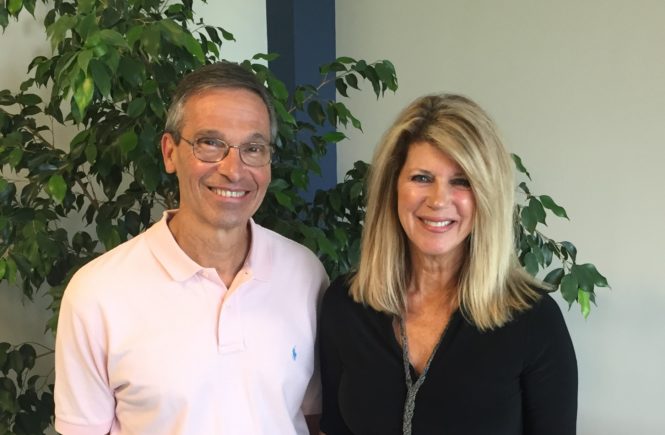Podcast: Play in new window | Download (Duration: 39:20 — 54.0MB)
State Senator Fred Mills, chair of the Senate Health and Welfare Committee, joins Discover Lafayette to talk about recent news concerning the effectiveness of the Louisiana Department of Children and Family Services (“DCFS”), in particular Child Protective Services, after recent news of the deaths of two toddlers, each two years of age. One died following his third fentanyl overdose and the other was found in a trash can after dying from blunt force trauma.
These tragic deaths caused the operations of DCFS to come under intense scrutiny as legislators pushed for answers. The Senate Health and Welfare Committee is calling a series of oversight meetings every six weeks to discuss and monitor the agency’s handling of child welfare cases. Senator Mills says the purpose of the oversight is to have DCFS come up with a game plan for improvement, provide a timeline to achieve their goals, and also inform on the return on investment in changes made.
Chronic underfunding has left the agency short-staffed for years with the budget being slashed under the administration of Gov. Bobby Jindal. Senator Mills also says that current and former employees report that the agency’s environment is ‘toxic” and staffers are working 17 to 18 hours per day. There is a 25% attrition rate at DCFS yet only about 7.8% report leaving over pay issues; people leave because of work conditions. Employees report that supervisors at high levels don’t understand what caseworkers in the field experience. Mills did note that there has been conflicting testimony from supervisors who say they are working to put all hands on deck to address the shortage of staff.
DCFS receives about 100,000 calls per year from physicians, teachers and laypeople reporting potential cases of abuse with about 20,000 of those calls turning into cases to be handled. With high-risk Level 1 reports of abuse, DCFS has a statutory mandate to react within 24 hours and staff members report that there is not enough manpower to handle the volume as well as these mandated timelines. With 400 authorized jobs not being filled currently, each case worker is pushed to the maximum. In 2008, DCFS had 5,242 employees; in 2021 it had 3,561 full-time workers.
Senator Mills reports that the majority of the calls requesting help for children are from the East Baton Rouge and New Orleans area. August and September of each year see a huge spike in calls to DCFS as children are returning back to school and teachers and physicians interact with the young ones. Senator Mills gets many calls from grandparents asking for help as they witness their grandchildren struggling in abusive environments; their own children (the parent) may be on drugs, the family is dysfunctional, and the children are in danger. They ask, “What can we do?”
The average entry-level age of a caseworker is 35 as DCFS experiences trouble hiring people right out of college. The Senate Oversight Committee asked if outreach in all 64 parishes was being done to recruit through special job fairs and working with local economic development agencies. There has also been talk of modifying job requirements to be able to entice people to come to work. Currently, a social worker degree is required but older workers who have been with DCFS for 30 to 40 years say they have no degree, just experience and a great passion for the work. These older, seasoned workers feel DCFS is spending too much time trying to recruit based on education when the agency is unable to fill positions. They say, “If you have attrition and can’t fill positions, what you’re offering is not selling.”
DCFS is working to add a team approach to handling cases and reports of abuse. Importantly, a medical component to assist the caseworkers was reported this week as 50 positions are to be filled to add nurses to make home visits to families where the infants were exposed to drugs in utero. Senator Mills also said that retired law enforcement officials could be hired to accompany case workers for protection under trying circumstances, and partner with Medicaid officials to assist families to prove eligibility for benefits. The potential for public/private partnerships with one-year contract workers to reduce the bottleneck is also on the table; Senator Mills also asks, “Could current employees be given a finder’s fee for recommending new employees? Could bonuses be offered for short-term employees?”
Senator Mills reports that DCFS came up with 15 bullet points on ways the agency can improve its functioning. The Senators want a detailed plan and a timeline as to what DCFS hopes to accomplish. The question Senator Mills raised was, “Do you have the skill set to make the proposed changes and why did it take these two catastrophes to bring about these changes?” There are big challenges ahead.
This is our second time interviewing Senator Mills and you can hear our first interview here. He has been a longtime proponent of the advantages of utilizing medical marijuana to treat chronic health issues and led the charge to have it legalized in Louisiana. He reports that many people are experiencing the benefits of having access to medical marijuana for a variety of health reasons and the calls he gets from these patients are gratifying. The product is still not at maximum production which has led to a shortage in dispensaries and continued high prices.
Senator Mills estimates Louisiana is still a generation away from legalizing recreational marijuana. He joked that younger people under 40 say “What the Heck!” and people over 55 say “Heck, No!!”
Senator Mills represents portions of Lafayette, St. Martin, St. Landry and Vermilion parishes. A pharmacist by trade, his work in the Senate has been heavily skewed to taking care of Louisiana citizens’ medical needs. We thank him for his dedicated service to our community. We also thank him for his heart, his willingness to answer calls, and his wonderful sense of humor!



